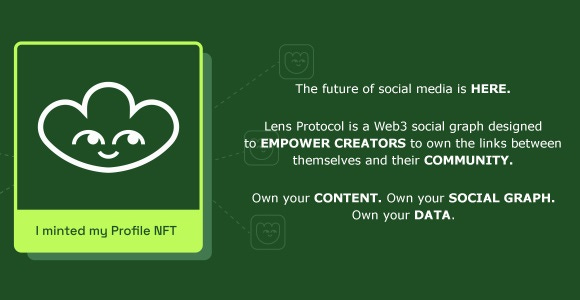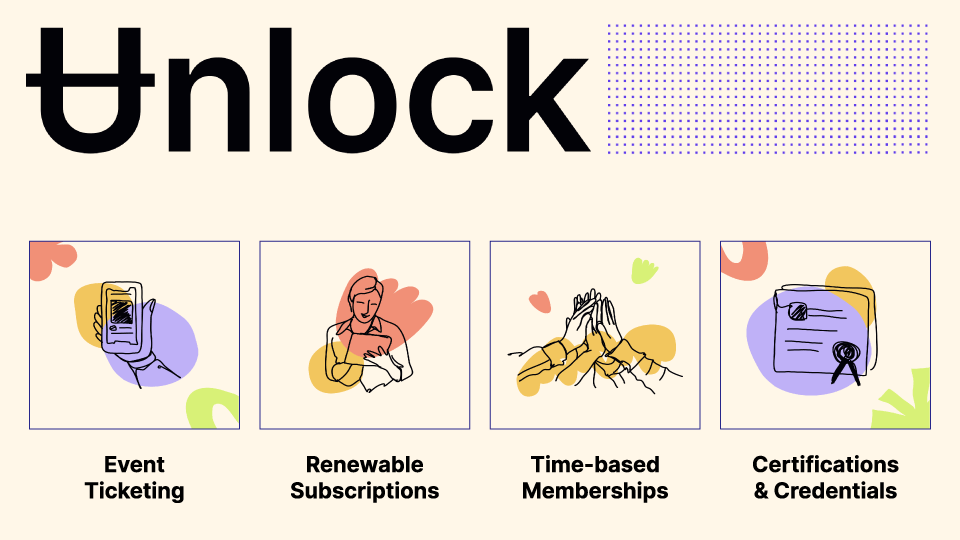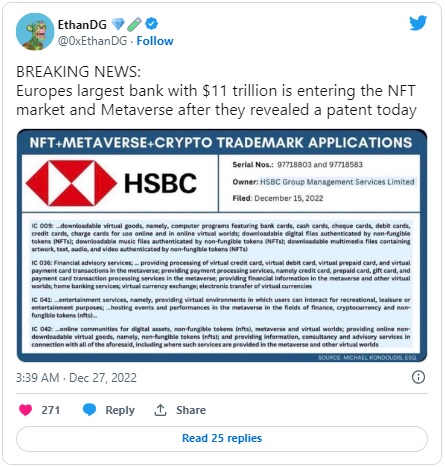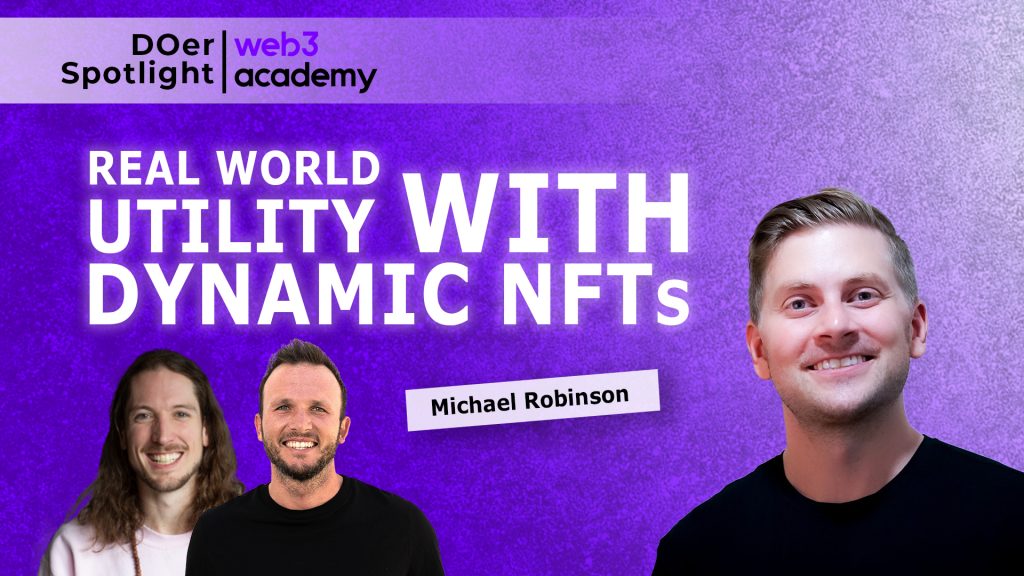
Turning Houses Into Tokens and Disrupting Real Estate With Web3 | Jerry From Lofty
Tokenized real estate is simply better for everyone involved
Prefer listening? Get the low down on tokenized real estate on your favorite platform 👇
GM web3 explorers!
Real estate (RE) is one of the oldest and most popular investment vehicles in the world. But in its current form, it favors people who are already rich rather than those just getting started.
Real estate investing is an industry that’s ripe for disruption, and web3 tech is the solution. ✅
To tell us all about how web3 is changing real estate investment we invited Jerry Chu, the CEO, and co-founder of Lofty, to this week’s DOer Spotlight.
In this episode, we break down:
- The current problems with the real estate industry (unaffordability is a big one) 💰
- How Lofty is using web3 to solve these problems 🚀
- What on-chain real estate investment looks like for buyers and sellers 🤔
- How Lofty leverages DAOs and decentralized governance to manage properties on its marketplace 🧑💼
Let’s dive in.
🤝 Together With Lens: The Evolution of Social Networking 👀
The Problems With Real Estate
Looking at the big picture, the real estate industry suffers from a phenomenon where property values rise much faster than the wages people receive due to compounding.
Consequently, you have a situation where it’s easier for people who are already rich to continue growing their wealth while less fortunate people are priced out of their respective markets.

Outside of the compound interest effect, three particular problems keep people out of real estate investing:
- Long and complex transactions
- The costliness and consequent risk of real estate investing
- Poor liquidity
In the US, it can take upwards of 70 days to close on a property which includes countless hours of dealing with brokers, agents, and not to mention the fees they take as well. And since we now have easier ways to deploy capital (think stock and crypto brokerage accounts), drawn-out transaction times can make RE an undesirable asset class.
Outside of transaction times, real estate is expensive, plain, and simple. For people who’ve just graduated from university or have even worked for a few years, it’s extremely difficult to get on the property ladder.
But say you saved up enough for a down payment, do you really want to risk all of it (plus deal with a mortgage)? For many people, this answer is no, even though RE is a top-performing asset class.
The main reason for this comes down to liquidity.
If you buy a property and something happened (i.e., an accident, job change, etc.) that requires you to quickly sell your asset, chances are you’ll lose a lot of money.
For example, even if you sell the property at the same price you bought it, you’d end up losing around 6% straight off the bat to realtor fees. On a million-dollar property, that’s $60,000 wiped from your investment without considering market demand and potentially having to lower your asking price.
All of this makes RE investment a tricky option not only for people just starting their careers but seasoned investors as well.
But Lofty is leveraging blockchain technology to change this.
How Lofty is Disrupting the Real Estate Industry With Web3
Jerry and the Lofty team realized that they could solve all three of real estate’s problems by tokenizing and fractionalizing individual properties.
Lofty simplifies the purchasing process with investors buying tradeable tokens (which give a small percentage of ownership) instead of having to cover the full price of the property. So not only is RE investment much more affordable, but it also allows people to deploy capital in mere minutes rather than months.
Tokenization also solves the problem of liquidity because it allows investors to unwind their investments in small chunks (sometimes as little as $50 per token) rather than having to rely on one entity with significant capital.

But How Does the Process Actually Work?
Lofty functions as a pure marketplace. You can think of it like any other real estate website that has listings from multiple sellers.
But instead of extensive negotiations with different buyers, sellers simply list their property on Lofty at their desired price and then see how much interest they get from investors.
For example, you could list your property on Lofty for $300,000 with each token costing $50, leaving the property with 6,000 outstanding tokens.
If you’re able to sell out all the tokens that represent the property, the closing process begins. The property deed is then automatically transferred to a DAO LLC (one for each unique property) with each investor becoming a member of the decentralized organization.
However, if there’s not enough demand, you can change your listing price based on how many tokens you’ve sold already, or you could simply de-list your property.
Now, since Lofty only functions as a marketplace, governance decisions fall to the owners themselves. However, Lofty does provide the technology to facilitate these processes.
🤝 Together with Unlock Protocol: NFT Ticketing is the Future. Learn How to Easily Create and Sell NFT Tickets for Your Next Event!⚡
DAOs and Decentralized Governance Being Used in the Real World at Scale
DAOs and decentralized governance are ideals that we haven’t yet figured out how to implement in the real world on a large scale. But Lofty’s success could be paving the way for the future DAO playbook.
And it all started with Lofty getting to know its customers.
Now, Lofty initially started as SaaS software for real estate investors. And since they were fortunate enough to go through Y Combinator (a prominent San Fransisco accelerator), the team was taught to always talk to their customers and figure out what their real problems were.
Over time, Lofty forged strong relationships with its SaaS clients, learning about their problems and building the necessary trust to make the company’s pivot into tokenizing properties easier.
But even though the company had long-term relationships with RE investors, they didn’t mention blockchain or tokenization because they knew it would confuse most people.
So instead, they focused on what property sellers cared about: how much they could sell their house for and how quickly they could sell it. All the other details like who the buyer is, the background process, or the technology used during the sale aren’t important.
From this lens, it becomes a no-brainer for property sellers because Lofty charges sellers 3% (half of what traditional realtors charge) and they speed up the sales process by improving liquidity through tokenization.
On top of this, there’s no negotiation between a seller and multiple buyers—if a property is too expensive, people simply won’t invest.
Plus, there are no open houses, so there’s less friction during the selling process.

Then on the buying side, they focused on the fact that people could now own a slice of real estate for as little as $50—an amazing benefit for investors and something that wasn’t possible before.
On top of this, Lofty negates information asymmetry which is a common issue for property buyers.
For example, sellers are always at an advantage because they know more about their property than potential buyers do. So, if they’re not legally obligated to mention something about their property, sellers will often avoid it—especially if it can impact the selling price.
Instead, Lofty shares everything buyers need to know in each property overview, such as a tenant’s payment history, to level the playing field.
Lofty didn’t need to painstakingly sell blockchain and web3 to people because that’s not what was important, it was all about the benefits for the end user, something we can all learn from as we build in web3.
How the Properties are Managed Through DAO LLCs
Unlike most DAOs, Discord isn’t the primary way to manage governance (although a Discord server does exist for general discussion).
Instead, properties on Lofty are managed through a governance program where owners vote on matters related to their properties while a third-party property manager carries out the decisions and is paid a percentage of rental income.
For example, a tenant may request new shelves from the property manager who will then report the request and other relevant details to Lofty. Lofty will then create and send a governance vote to the property’s owners by email. If the proposal receives more than 60% of the votes, it’s passed and the manager carries out the next steps.
One thing to note is that investors can’t own more than 10% of any one DAO to prevent any single entity from controlling property decisions, improving fairness.
Another interesting aspect is that Lofty implements automated governance to save investors from having to deal with too many votes. They facilitate this by having investors complete a scenario questionnaire based on common situations in property investing, such as minor repairs or delinquent tenants.

Based on these answers, Lofty can significantly speed up the approval process for tenants while reducing investors’ workloads. However, investors will still need to vote on proposals with uncommon scenarios.
What About Finances?
Lofty doesn’t handle any of the money involved in the property. Instead, the property manager is the one responsible for collecting and depositing rent or paying for repairs from the DAO’s FDIC-insured bank account.
However, any withdrawals are completed through an API integration that allows you to withdraw a percentage of the DAO account based on your ownership.
It’s also possible for investors outside of the US to withdraw their earnings in USDC straight to their crypto wallets instead of relying on intermediaries.
One thing to note is that investors do need to pre-fund the DAO bank account with a maintenance reserve (around 5-10% of the property price) to cover ongoing costs. And as funds are depleted, owners can vote on the percentage of rental income that goes to replenish the maintenance reserve.
Outside of the DAO’s bank account, all property tokens are held in self-custody or hybrid-custody wallets.
While Lofty would prefer purely self-custody, the majority of its customer base isn’t web3 native and they were losing tons of potential customers by asking them to create a crypto wallet.
So they solved the problem by creating the Lofty Wallet which is a multi-sig wallet where both the investor and Lofty each receive a key. Not only does this approach help onboard new people to web3, but it also provides extra security as people new to wallets often forget their seed phrases which Lofty can help to reset.
However, users always have the option to switch to a full self-custody wallet when they’re comfortable doing so.

SOCIALS
Tweet of the Week
Fractionalizing Real Estate is Just One Use Case of Web3 Tech
What Jerry and the Lofty team are doing through tokenization only scratches the surface of what’s possible with blockchain technology, yet it already brings countless benefits to both buyers and sellers.
But what else could we see in the future? 👀
Since tokens live on-chain, we could see DeFi protocols, such as Maker, accept tokenized real estate as collateral for crypto loans.
This could unlock significant flexibility for homeowners since traditional financiers will only refinance significant sums of money due to underwriting costs. In contrast, automated protocols are open to loans of varying sizes.
We could also see property deeds become tokenized. But this would require a complete overhaul of many countries’ deed management systems. 😵
For example, in the US, there are over 3,000 counties that are responsible for managing property deeds and ownership changes in their local areas. And while their current management processes are outdated, they don’t want to spend money or time integrating blockchain technology to improve them.
On top of this, you would need to convince every county to buy into the new process.
That’s why Jerry believes we’d either need the government to integrate blockchain tech on its own or rely on a benevolent party to develop the technology instead.
While we still have a long way to go before web3 can truly disrupt the real estate industry, DOers like Jerry are paving the way forward. 🛣️
👉 If you want to learn more about what Lofty is doing with tokenized real estate, make sure to check out their Twitter or marketplace.

FOR THE DOERS
Take Action & Level Up
READ
As we come to the end of the year, it’s always good to reflect on what we’ve learned. Check out: 6 Vital Web3 Lessons To Keep In Mind for the Coming Year.
FOLLOW
Ensure you don’t miss out on Raul’s shitposting by following Web3 Academy on Twitter!
LEARN
Discover other industries that web3 is disrupting: What If Nintendo Was a DAO?













